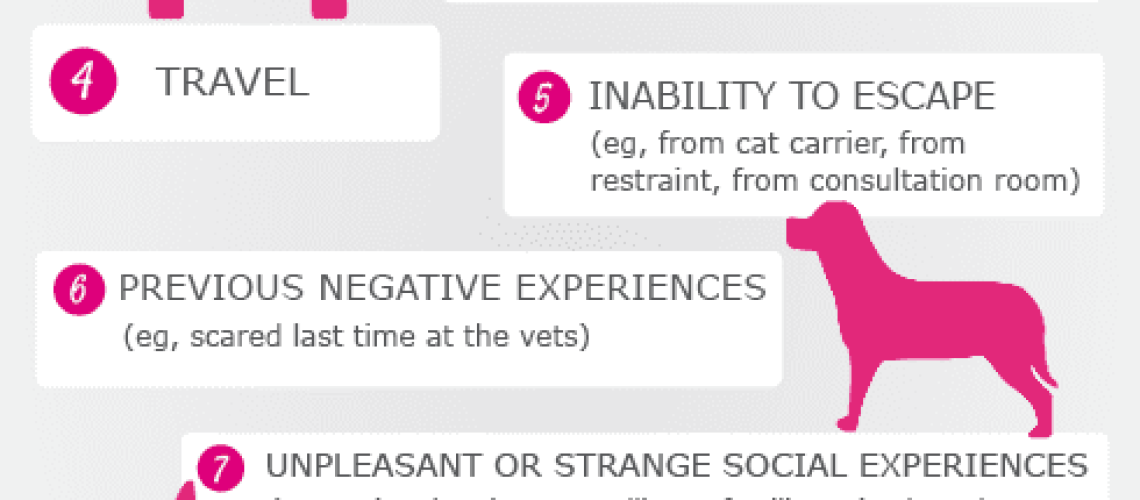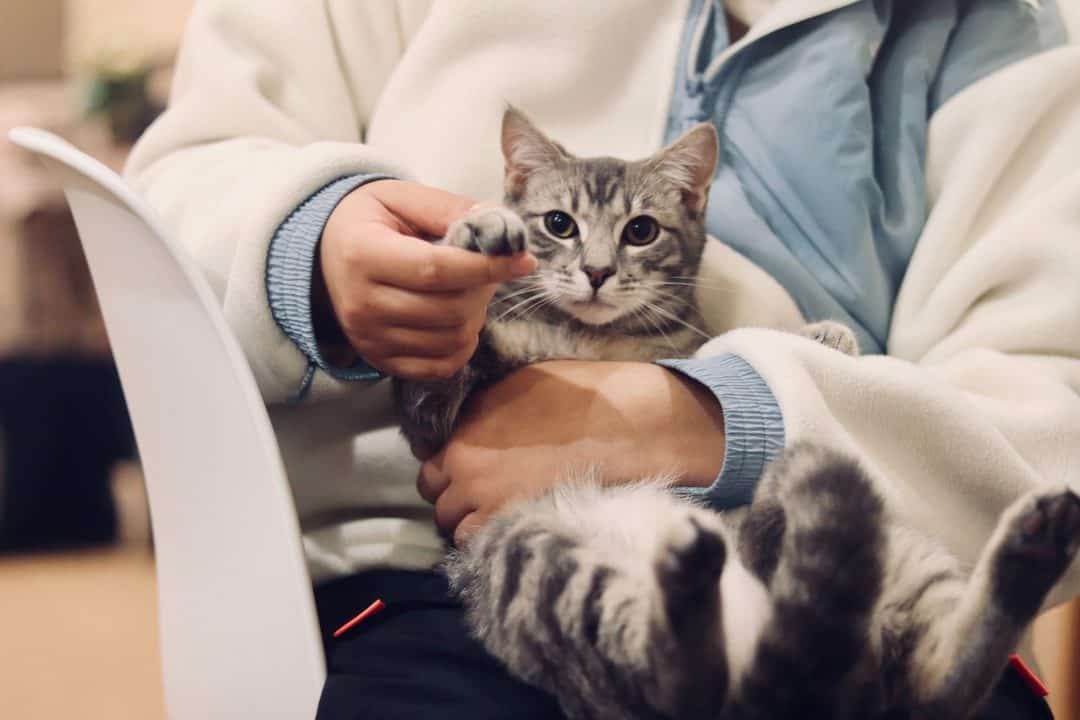Is your furry feline friend due for a checkup? If you've ever wondered why your cat needs to visit the vet, then you're in the right place! Understanding the importance of regular veterinary care for your cat is crucial to ensuring their overall health and well-being. Did you know that cats are masters at hiding illness? That's right, they can often mask symptoms until it's too late. But fear not, by delving into this subject, we'll uncover why taking your cat to the vet is essential for catching potential health issues early on. So, let's dive in and discover why it's time for a checkup for your beloved kitty companion!
Key Takeaways:
-
1. Regular vet checkups are essential for your cat's overall health and well-being.
2. Cats are masters at hiding illness, so routine checkups can help catch potential health issues early.
3. Vaccinations and preventive care provided by the vet can protect your cat from common diseases.
4. Dental care is crucial for cats, as dental problems can lead to serious health issues if left untreated.
5. The vet can provide guidance on nutrition, behavior, and other important aspects of your cat's care.
The Importance of Regular Vet Visits for Your Cat
Ensuring your cat's overall health and well-being
Regular vet visits are crucial for maintaining your cat's overall health and well-being. Just like humans, cats can develop various health issues that may go unnoticed without proper veterinary care. During these visits, the vet will conduct a thorough examination to check for any signs of illness or underlying conditions that may require treatment.
Veterinarians are trained professionals who can detect early warning signs of diseases that may not be visible to the naked eye. By catching these problems early on, they can be treated more effectively, potentially saving your cat from unnecessary suffering.
Preventing potential health problems
In addition to detecting existing health issues, regular vet visits also help prevent potential problems from arising in the first place. Vets will administer necessary vaccinations to protect your cat against common diseases such as rabies and feline distemper. They will also provide preventive treatments for parasites like fleas and ticks.
Furthermore, vets can offer advice on proper nutrition and recommend specific diets tailored to your cat's needs. They can also provide guidance on exercise routines and behavioral issues that may affect your cat's overall health.
How Often Should You Take Your Cat to the Vet?
The frequency of vet visits depends on various factors such as your cat's age, current health condition, and lifestyle. As a general guideline, it is recommended to take your cat for an annual check-up at a minimum.
If you have a kitten or a senior cat (over 10 years old), more frequent visits may be necessary. Kittens require multiple vaccinations during their first year of life, so they should visit the vet every few weeks until they complete their vaccination schedule.
Senior cats may have age-related health issues that require more frequent monitoring. Your vet will be able to provide specific recommendations based on your cat's individual needs.
Signs that Indicate Your Cat Needs a Vet Visit
Cats are known for their independent nature, and they can be quite good at hiding signs of illness or discomfort. However, there are certain signs that should never be ignored and indicate the need for a vet visit:
- Loss of appetite or sudden weight loss
- Lethargy or decreased activity level
- Vomiting or diarrhea lasting more than 24 hours
- Difficulty urinating or defecating
- Changes in behavior, such as increased aggression or excessive meowing
- Visible injuries, wounds, or lumps
Why Do Cats Age Faster than Humans?
Cats age faster than humans due to differences in their metabolism and genetic makeup. While humans typically live for several decades, the average lifespan of a cat is around 15 years.
Cats have a higher metabolic rate compared to humans, which means their bodies function at a faster pace. This increased metabolic rate results in quicker cell turnover and aging processes.
Common Health Issues in Aging Cats
As cats age, they become more susceptible to certain health issues. Some common health problems observed in aging cats include:
- Kidney disease: The kidneys may start to lose their efficiency over time.
- Dental problems: Tartar buildup and gum disease can lead to tooth decay and oral infections.
- Arthritis: Joints may become stiff and painful, making it difficult for cats to move comfortably.
- Hypertension: Older cats may develop high blood pressure, which can lead to various complications.
- Hyperthyroidism: The thyroid gland may become overactive, causing weight loss and increased appetite.
Preventing Serious Health Problems in Cats with Regular Checkups
Regular checkups play a crucial role in preventing serious health problems in cats. By visiting the vet at recommended intervals, potential issues can be detected early on, allowing for prompt treatment and management.
Vets will conduct physical examinations, run necessary tests, and provide preventive treatments to keep your cat healthy. They can also offer guidance on nutrition, exercise, and other aspects of cat care that contribute to overall well-being.
Tips to Make Vet Visits Less Stressful for Your Cat
Vet visits can be stressful for cats due to unfamiliar environments and handling by strangers. However, there are steps you can take to make these visits less anxiety-inducing:
- Get your cat used to their carrier by leaving it out at home and gradually introducing positive associations like treats or toys.
- Use pheromone sprays or diffusers designed to calm cats in stressful situations.
- Bring familiar items from home, such as a blanket or toy, to provide comfort during the visit.
- Consider scheduling appointments during quieter times at the vet clinic to minimize exposure to other animals and noise.
- Talk to your vet about using sedatives or anti-anxiety medications if your cat has extreme stress or fear-related issues during vet visits.
In conclusion, it is important to take your cat to the vet regularly for checkups. By doing so, you can ensure their overall health and catch any potential issues early on. Remember, a healthy cat is a happy cat!
How long does a check up take for a cat?
During the appointment, which typically lasts between 15 to 30 minutes, your vet will thoroughly examine your cat's entire body, searching for any signs of illness or anything out of the ordinary. This process is important for maintaining your cat's health.
Why would a cat need to go to the vet?
What is the importance of taking indoor cats to the veterinarian? Indoor cats can experience a variety of health issues and conditions that are unrelated to being outdoors, including weight problems, hormonal imbalances, genetic disorders, and tumors, among other ailments. Therefore, it is crucial for them to receive regular check-ups from a veterinarian.
What do vets do to cats at checkup?
A physical examination of your cat includes observing their overall appearance, listening to their chest with a stethoscope, and feeling specific areas of their body. The veterinarian will also observe your cat's alertness and interest in their surroundings.
How often do cats need vet check ups?
Annually
Taking care of your pet cat's medical needs. Until they reach the age of four months, kittens should visit a veterinarian every three to four weeks. For a regular adult cat, it is recommended to have an annual check-up with the vet. Senior cats, on the other hand, should see the vet at least twice a year.
How much does it cost to check your cat?
The average cost of grooming for pets ranges from $43 to $73 per visit. Routine vet checkups can cost between $50 and $250. Allergy tests for cats or dogs typically range from $195 to $300. Heartworm tests can cost between $35 and $75. Treatment for ear infections is priced at around $149.30. There are many other services and prices available as well.
What happens at a cat's first vet visit?
What Can I Anticipate During the Initial Physical Examination? The veterinary team will inquire about your kitten's background and conduct a thorough physical assessment. They will also check for any presence of fleas and mites. The veterinarian will examine your kitten's eyes, ears, lips, skin, fur, and overall body.
















